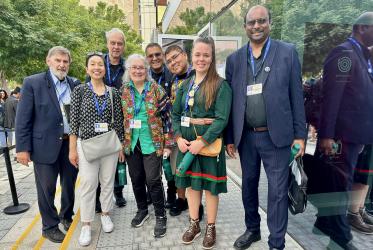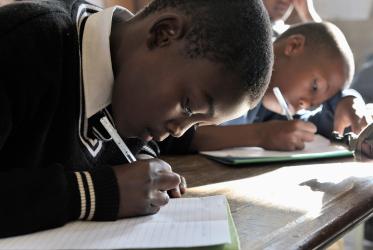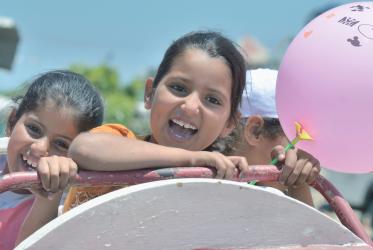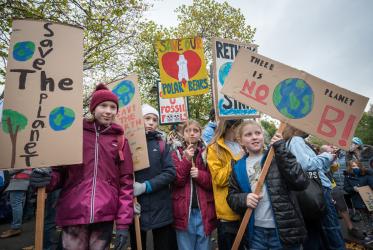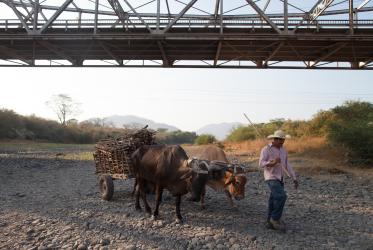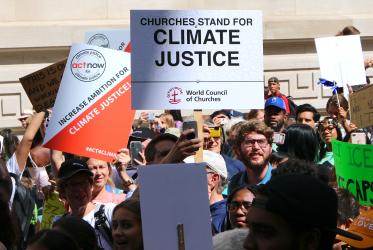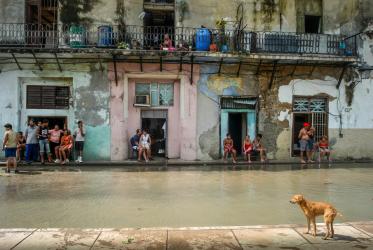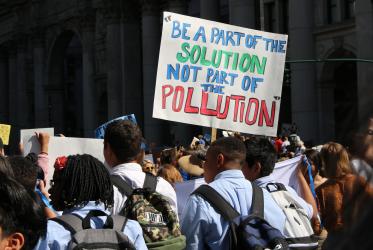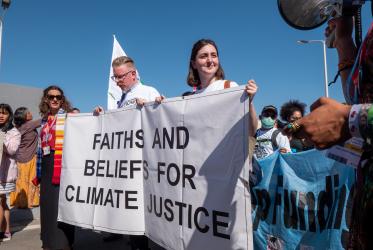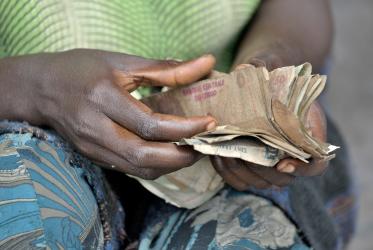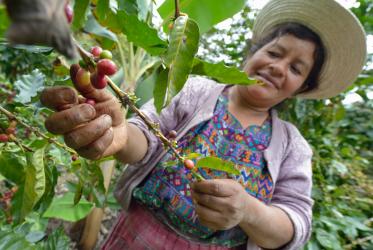Displaying 41 - 60 of 696
As floods rage in eastern Africa, church acts to save the people
22 November 2023
World Children’s Day symposium brings sparks of hope
21 November 2023
WCC invites global fellowship to join World Children's Day events
16 November 2023
WCC Eco-School begins in Crete
15 November 2023
World Council of Churches plans pilgrimage to Marshall Islands
09 November 2023
WCC will bring message to pre-COP28 Faith Leaders Summit
06 November 2023
WCC co-hosts webinar on climate emergency and faith responses
25 October 2023
ACT Alliance general secretary: “equity is not negotiable”
26 September 2023
NIFEA group calls for reimagined global financial alternatives
21 September 2023

